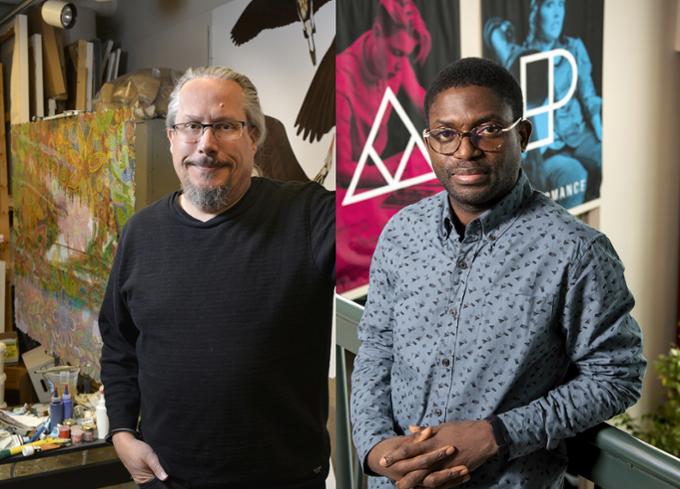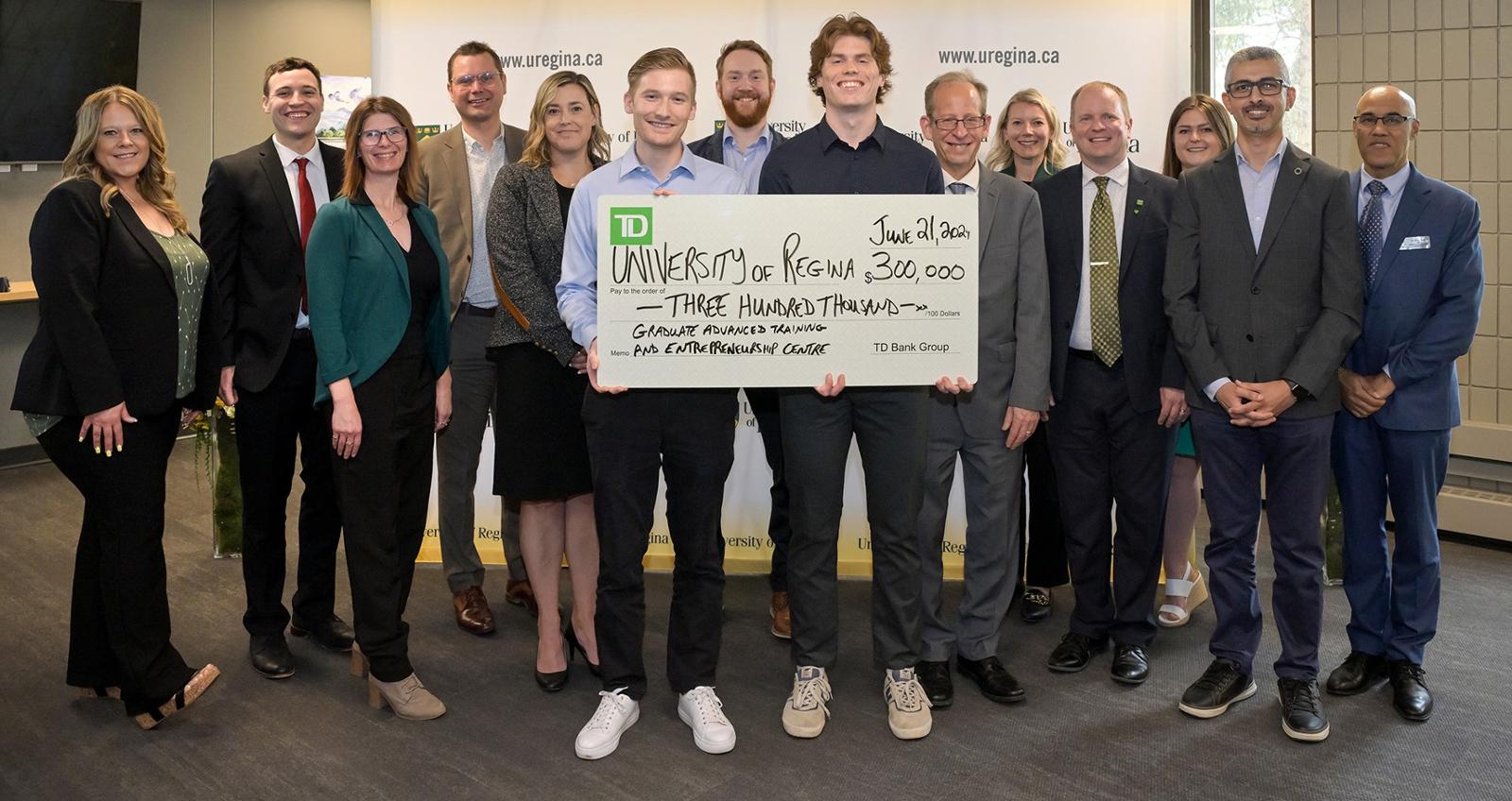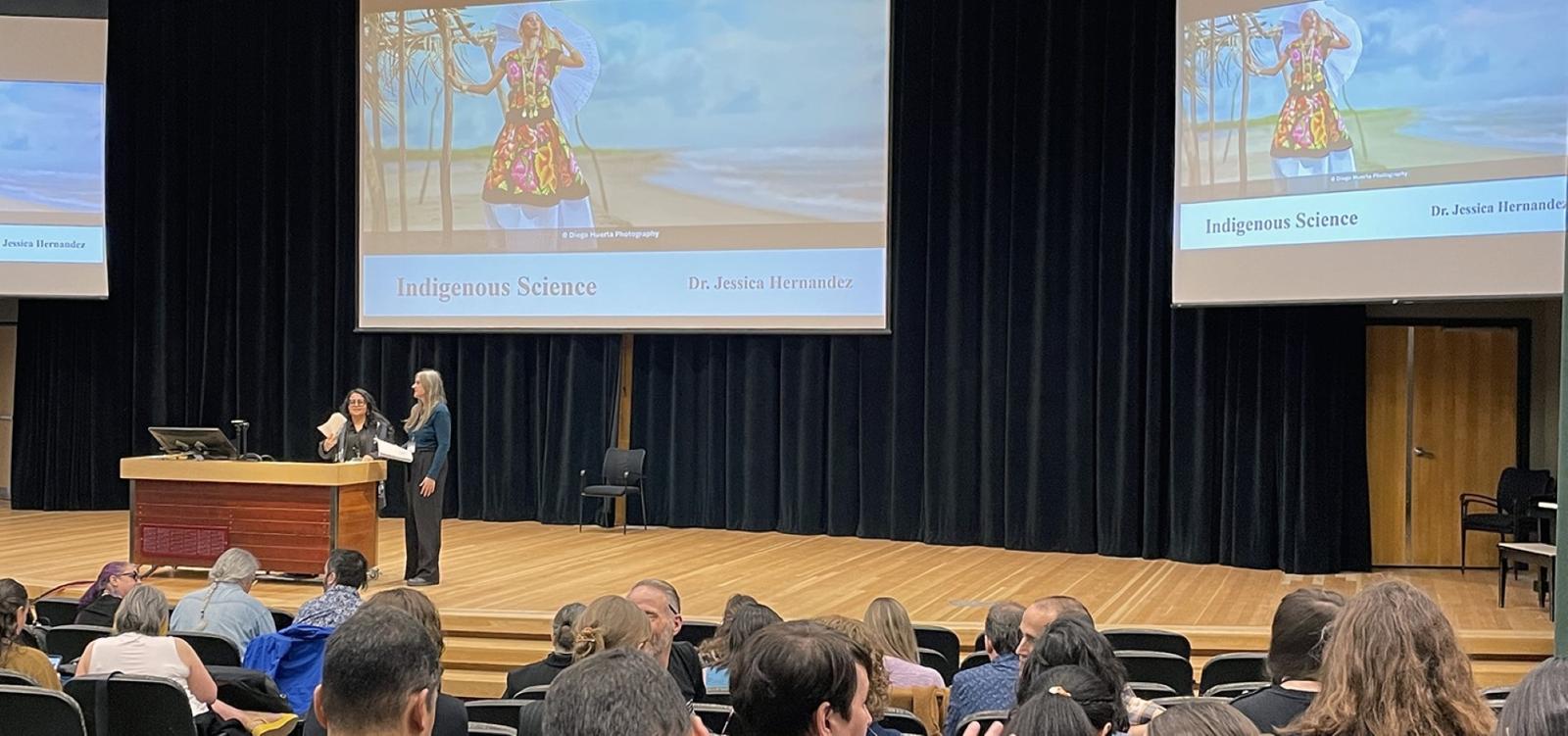The Royal Society of Canada (RSC) is a prestigious organization that recognizes the country’s leading intellectuals, scholars, researchers, and artists. The RSC then mobilizes them in open discussion and debate to advance knowledge, encourage integrated interdisciplinary understandings, and address issues that are critical to Canada and Canadians.
Founded in 1882, the Royal Society of Canada began under the personal patronage of the Governor General, and since that time, succeeding Governors General have remained honorary patrons of the RSC.
This year, two University of Regina faculty members from the Faculty of Media, Art, and Performance have been inducted into the Royal Society of Canada.
Professor David Garneau
Professor David Garneau is a highly respected Métis artist, curator, and scholar who has attracted national and international renown for his original contributions to contemporary Indigenous art. Garneau has been elected as a Fellow to the Royal Society of Canada.
Watch the video below to find out more about Professor David Garneau:
Dr. Taiwo Afolabi
Dr. Taiwo Afolabi is a Canada Research Chair in Socially Engaged Theatre and a University of Regina associate professor in the Faculty of Media, Art, and Performance.
A Black interdisciplinary artist-researcher from Africa, he is internationally recognized for his research-based theatre focusing on social justice, human rights, and anti-racism education among Indigenous, immigrant, and marginalized communities.
Afolabi was inducted as a Member in the College of New Scholars, Artists and Scientists of the Royal Society of Canada.
Watch the video below to find out more about Dr. Taiwo Afolabi:
Banner photo: David Garneau (left) and Dr. Taiwo Afolabi. Credit: U of R Photography
About the University of Regina
Set in the heart of the Canadian prairies we are a comprehensive, mid-sized university where the opportunities are as limitless as the horizon. Our campuses are on Treaty 4 and 6 - the territories of the nêhiyawak, Anihšināpēk, Dakota, Lakota, and Nakoda peoples, and the homeland of the Michif/Métis nation. It is our responsibility to strengthen relationships with Indigenous communities to build a more inclusive future for all. Our three federated colleges, 10 faculties, 25 academic departments, and 18 research centres foster innovative research with practical and theoretical applications. We are committed to cultivating the potential of our 16,000 students and supporting their health and well-being. We take learning beyond the classroom through work and volunteer experiences to develop career-ready graduates.
Let’s go far, together.




